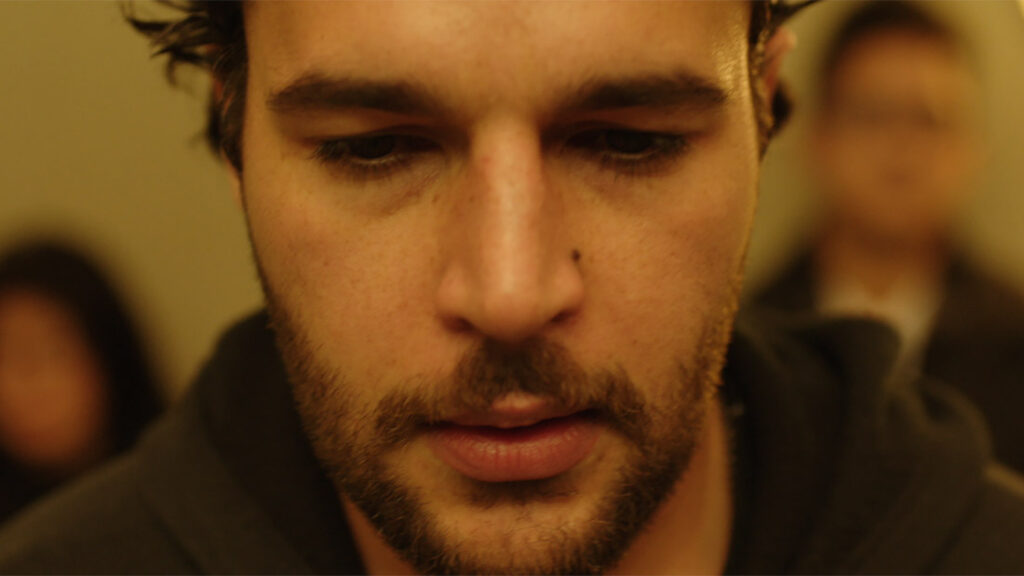No film at Sundance this year hit me with more force
emotionally than Josh Mond’s “James White,” a devastating dissection of a man
who’s forced out of his arrested development and into adulthood by extreme
tragedy and the responsibility that comes with it. Mond opens his film in
close-up on his title subject, played with tragic realism by Christopher Abbott
(“Girls”). James is drunk again. He’s barely upright in a loud club, putting in
headphones to listen to his own music while people dance around him. James
seems to be the type who can be alone in a crowd, and Mond captures that by
having him listen to a melancholy tune via earbuds while more celebratory music
pumps around him. He stumbles around the club, out the door, and into daylight,
as the rest of the world seems to be going about its day. Was he there all
night? Was he partying this hard in the middle of the day? It’s never answered
but rarely has a character been so defined in a few, dialogue-less scenes, as
is Mond’s visual style, keeping us close on Abbott’s face, creating a
claustrophobic aesthetic that makes the emotions of the piece more resonant.
James’ father has recently passed and his mother (Cynthia
Nixon, doing the best film work of her career) is sitting Shiva. James’ best
friend (Kid Cudi) stops by to help offer support while most of the friends of
James’ family seem to regard the young man with degrees of disappointment. Oh,
it’s James, probably getting into trouble again. James is there for his mother
as much as he can be, but he goes out a lot, getting into bar fights and
getting royally messed up whenever he can. He’s a barely functioning alcoholic,
someone who would be in a quarter-life crisis if he had the degree of responsibility
to care enough where he was going. And yet Mond and Abbott don’t play White as
a lost cause. He’s troubled, not damaged beyond repair.
White is forced to discard many of the tools—alcohol, drugs,
irresponsibility—that he has used to shield himself from the real world when
his mom’s cancer returns from remission with a force. There’s no one to take
care of mom instead of James, and the hospital/hospice systems that one would hope
would be there to offer guidance are often unresponsive. James has to deal with
the unimaginable physical requirements of caring for a loved one who is dying
and Mond doesn’t shy away from presenting it in all of its brutality. When he asks his best friend if he could take the burden of disposing of his mom’s body when she passes, it’s one of those heartbreaking cinematic moments that feels all too real. As much
as I like “Me and Earl and the Dying Girl,” another film about cancer at this
year’s fest, that movie is to “Fault in Our Stars” as this movie is to “Amour.”
It’s stark, it’s terrifying, and it’s hard to watch. But it has to be because
it’s about a troubled man pulled from his own destruction by forced
responsibility. And Mond’s visual style puts us right in White’s face, feeling his pain.
Abbott is simply phenomenal here, never overplaying White’s
demons to the degree that other actors would have with the same material.
Alcoholic, troubled twenty-somethings can be catnip for actors eager to
over-act, and then you add in the melodrama of a parent dying of cancer? Think
of all the places this performance could have gone wrong. Abbott misses every
trap. And, in doing so, he crafts one of the few characters from this year’s
Sundance who I won’t forget. I’m also a sucker for films that really stick the landing and the final image of “James White” is as memorable as any I’ll see all year: a man cast out of his comfort structure and uncertain of where he’s going next.












